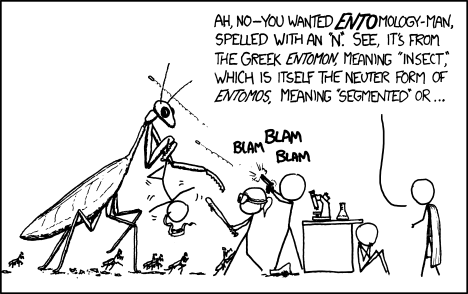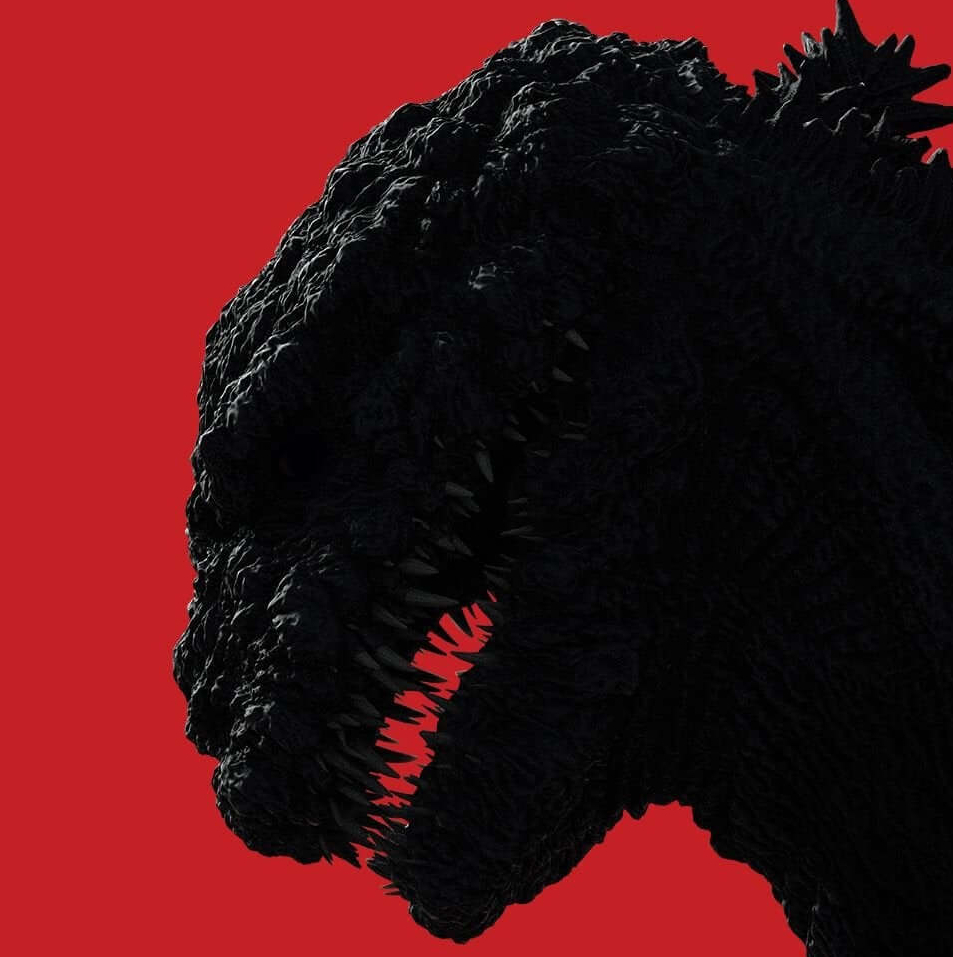One of the comments reads : Actually, we will probably never figure out, was it man or woman. but I thought this comment of the professor was an interesting eye opener. https://mastodonapp.uk/@MarkHoltom/112070436760917344
A woman’s cycle varies between 15 and 45 days, averaging 28.1 days, but with a standard deviation of 3.95 days. That’s a hell of a lot of variability from one woman to the next. And the same variability can be experienced by a large minority of women from one period to the next, and among nearly all women across the course of their fertile years.
On the other hand, the moon’s cycle (as seen from Earth) takes 27 days, 7 hours, and 43 minutes to pass through all of its phases. And it does so like clockwork, century after century.
Of the two, I am finding the second to have a much stronger likelihood of being the reasoning behind the notches.
Strange how gender-bigotry style historical revisionism and gender exceptionalism seems to get a wholly uncritical and credulous pass when it’s not done by a man.
I doubt the teacher really believed this, and they were likely striving to just open their students’ minds to the idea that most innovations are probably assumed to be made by men
The point would be a lot more impactful if they didn’t make up a story to support their position.
This is a class on anthropology, the point was to challenge the assumptions made when interpreting artifacts/history with little context. No one made anything up lol
Why not use a real and confirmed example, then? Because they do exist.
Making a story up - such that it can be actively undermined - certainly does the job poorly at best, and actively hurts the objective at worst.
While I agree with you that the teacher in this post is wrong about what this is, I don’t think labeling “gender bigotry” indiscriminately as something both sexes do under one umbrella is accomplishing anything but minimizing the struggle women have endured for basically all of human existence up until the last few decades.
Personally, I wouldn’t fault this woman for thinking what she does if she’s willing to accept a broader explanation later, given that women have literally been sold as property up until a couple hundred years ago.
Women have the right to at least posit the ways they as a group have been held down, and that includes accepting their indignation and allowing them grace for when they’re wrong, because without those things they won’t actually learn the truth.
Further than that, I think it’s necessary for women learning now to have the same realization this one did that women throughout all of history save for this recent tiny sliver have been oppressed. Even if it’s built on an incidentally faulty premise, that doesn’t mean the realization itself is wrong.
Covering up the discourse by labeling the process of realization as “gender bigotry” is itself an attempt at erasure, and very much puts you on the side of the oppressors, just because you think it’s distasteful to have this realization yourself.
I’m sure gender bigotry exists in the direction of women towards men. This ain’t it.
The gender-bigotry comes from the “what man needs to mark 28 days?” There’s snark behind the comment, and it’s unnecessary. That said, a woman could be just as likely as a man to mark moon phases. But saying “man” doesn’t mean “male” when talking about us as a species from my understanding. Seems like a broader term to use which includes the entirety of the homo-whatevers.
I’m just some guy here and am not educated in this stuff, though!
Other than tides, why do you need to know when the next full moon is? And can’t you just look at the moon and see how close it is waning to the full moon?
Not saying the calendar is definitely a woman’s, but wanting to know when you’re going to start leaking blood onto everything near you seems like a good reason to track a period. Plenty of women are regular like clockwork, I was at 26 days almost exactly for years.
If you start to notice one thing happens pretty regularly and another thing happens regularly but on a larger scale… Say the monthly moon phases and the seasons, you can use the more frequent one to roughly track the less frequent one.
There’s both practical and more spiritual/philosophical reasons for this.
Before artificial light sources, especially electrical ones, moon light let people stay productive longer whilst outside. This was especially important for comunal activities like hunting, harvests or celebrations too. Keeping track of moon cycles is thus valuable for preparation in scheduling. And once you do that it can also be used to organize other social events around that. Similar to how our modern calendars and schedules are built around important fixed events.
The moon and sun as celestial bodies also gained prominent religious and mystical significance in ancient cultures. Remember that people didn’t actually know what the moon or sun were in the modern scientific sense. But for some strange reason these mystical glowing disks on which people were so reliant kept rising with unerring synchronicity. The inquiry into the movements on the firmament lead many a civilization down the paths of observation, record keeping and math too.
So you’re arguing that people would have more use to write moon cycles than women cycles? And you talk about bigotry?!
I always read this type of statement as man = species.
I know this particular thinking is falling out of fashion but it’s not totally dead yet
Thing is, statements like the one in the post are just as ignorant as the claimed “enemy”.
You know what else takes 28 days? A moon cycle. We have absolutely no context, what this means. A period tracker bone is a perfectly valid hypothesis, but without any proof or context nothing more than this. It could have been used for moon phases, sheep counting, trade, or simply for testing stone knives.
look how much deeper blade three cut with a single stroke! Are you sure you want to go with brand 4?
Seeing the reactions in this thread, it does seem that a lot of men are indeed enemies of women. Why would it be so hot otherwise to discuss this?
And this reaction of yours is a prime example of jumping to conclusions based on political views.
You can argue, that this bone was used for 400 different things. Without context, arguing that it’s definitely something about menstruation is just pseudo-feminist circle jerking. They just choose this interpretation because it fits their views and goals. That’s unscientific.
What you’re doing here is also not much better. Instead of actually engaging with the argument I brought, you just assume, that everyone who disagrees with a pseudo-feminist interpretation of a bone, must be the enemy. That is not exactly scientific.
you talked about enemity first, remember? you have this view of a fight, and that anyone who dare say that a woman did something and not a man, is fighting men.
You have a very defensive position. Which means you feal attacked. You say it directly when you talk about “enemy”.
You are the problem my friend. Your first comment is aa problem. And the support it receives is concerning and scary.
Nope, I just pointed out, that an absolute statement like the one above is not valid. And the “enemy” I brought up, was used as a description of the position shown by the proponents of the menstruation bone absolutism.
And labeling me as a “problem”, without even an attempt at telling me where I might be wrong is pretty, well, bold?
Think about it, I write, that absolutism is not good, and your first response is “you are evil because you dare question whatever I happen to believe in”.
You don’t help feminism like that. And that’s pretty sad.
Professor: Maybe it was a woman? Just consider it with an open mind.
You: This gender absolutism is the enemy™!
This specific instance probably.
But the point is soo much of history ignores the female perspective (or the non-european perspective). Sometimes intentionally like all the female scientists that contribute to foundational studies and don’t get their name on the published paper.
And this is really damaging; I have a family member that legitimately believes that european-descent men are the smartest throughout history (when I brought up the Islamic Golden Age as a counter example he accused it of being propaganda).
American schools are so bad at teaching diverse history. So many still struggle with the basic truths about Columbus and the Natives.
Look at the ancient structures found throughout the world. The only one I know of in non-Mediterranian Europe is Stonehenge which, while impressive, is some stones hauled over a great distance and placed is an astronomically significant manner. Then you have pyramids and ziggurats in just about every other region except Northern Europe, North America, Australia, and Antarctica, ancient cities on every continent except Northern Europe, Australia, and Antarctica, Polynesians developing a means of marine navigation that is effective across the southern hemisphere (the Norse had a system that was effective in the North Atlantic), Australia having an oral history that has evidence of recording events that go back at least 10000 years (while surviving in some of the most inhospitable terrain on the planet). When you look at it, significant achievements in ancient Northern Europe were pretty sparse. We do seem to have caught up in the modern era, though.
So I what you are saying that we should ban all DEI activity, ban a bunch of books, and regulate Women’s bodily autonomy? /s
Everyone loves traditions!
Agreed, when speaking of the distant past, I always assume that by “man” they mean “mankind” aka human… Not males.
In the grand scheme, I don’t think it matters whether the thing was done by a male or female, the fact that it happened is the interesting thing about it.
I’m 100% positive that both men (males) and women contributed to these things, and it is impossible to know how much influence each sex had on any given thing, so I’m not sure why the sex of the ancient person who did it, matters.
I’m not sure why the sex of the
ancientperson who did it, matters.Make that a common sentiment and a good chunk of the division surrounding modern discourse goes away. People care way too much about genitals both in the past and present.
Not only what your genitalia is, but what you do with it, seems to be a top priority for far too many people. They’re not your genitals, so maybe don’t worry about it?
But “God” or something. I don’t know.
Not sure why you phrased that as correcting them when you were agreeing and adding to it.
I didn’t take it as a correction. More of a clarification. I omitted some extraneous detail that they added. I felt it was implied well enough by context that it didn’t need to be said, obviously they wanted to add more clarity to the statement.
In my mind the two statements are identical, except that mine relies on context and theirs is a bit more explicit in what is said.
Fair enough.
I don’t think that’s phrased as a correction. It clearly wasn’t as you noted
“clearly wasn’t”
I see now, you just phrase things abruptly in a way that SEEMS rude but clearly isn’t. My mistake. Have a nice day.
You figured out what it meant. That’s clear enough for communication purposes imo. You’re welcome to your own interpretation though
You are ignorant of recent history then.
Men did do their best to segregate women in the 18th and 19th century. And they succeeded. Even in the language.
Women fighting for women to be recognized in history is an important fight for women to be respected and recognized for their doing, because even now they aren’t.
And I’m not saying it’s an all men problem. It’s a society problem.
Oh, wow. Um…
We’re talking about bone carvings. And you’re well into or after the bronze age.
What I’m referring to is significantly prior to anything you’re talking about. The events you’re referring to are a few hundred years ago, part of recorded history, while I’m talking about the early days of mankind, well before the printing press, paper, or even writing instruments like the fountain pen or quill.
When you go back, well over 1000 years ago, more like 3000+ years ago, why does it matter if a thing was done by a human person with male genitalia or female genitalia?
That was my statement. Either you vastly misunderstood, or you’re so occupied by making a point, you didn’t care.
We’re talking about history where mysoginy left a big footprint because it was made by men that incapable of thinking that women could be more than what they were in their time.
Exactly like today. You’re asking why it matters whether it was a man or a woman, yet this whole conversation sparked because someone said that it could be a woman.
That’s conservatism for you.
I’m not disputing the fact that misogyny was (and is) and big problem, that women’s contributions were either disregarded or coopted by some guy and credit taken away from the actual contributor.
That happened. A lot.
But in the times before the written history books, we should be less concerned about the gender of an individual who we think used a thing in a new/innovative way for the time. I don’t think that studies of bone carvings or other ancient artifacts, being referred to as an “achievement of man” should imply, or was ever meant to imply, that it was done by someone with a penis. In that context, in all cases, for all intents and purposes “man” should, and as far as I know, is, thought of as “human” or “mankind”.
This isn’t a debate about the sociopolitical unfairness towards women, it’s a semantic argument about using the term “man” to refer to a human individual or someone who is a part of mankind. Bluntly, I took the statement in the OP as a tongue in cheek joke by the professor. They know that’s not what it meant, and used the assumption that “man” = “mankind” as the juxtaposition to subvert expectations, to crack wise about it. The same way someone would say “you know what sucks about twenty six year olds? There’s twenty of them” where the premise directs you to think of someone who is 26, and the punchline indicates that your assumption of it being a statement about people who are 26 years old, was wrong. That’s what makes it funny. Granted, that’s not very funny, but it’s the structure of a very common type of joke.
That’s what’s in the OP.
Instead, here we are talking about women’s suffrage for a field where they probably only remark about the gender of someone as a footnote.
That’s the correct interpretation of that use of the word, and the quote in the post is meaning to use it in that way before pretending it’s a gotcha.
The term man (from Proto-Germanic *mann- “person”) and words derived from it can designate any or even all of the human race regardless of their sex or age. In traditional usage, man (without an article) itself refers to the species or to humanity (mankind) as a whole.
Same here. My native langauge is not gendered and I rarely associate “man” in academic spaces with “gender” category. I usually need more info to tilt to gender in discussions.
Which is your native language? I keep looking for ways to ungender my english if possible. Removing gender from language feels more honest.
Swahili. If you want to translate “she/he went to the river”, you say “Alienda mtoni” which collapses she/he into the subject A- (Alienda) to mean “the person”. You always need context to use a gendered word (like mwanamke for woman) otherwise general conversation does not foreground it. There is literally no word for he/she in Swahili, as far as I know.
I love you how specified “as far as I know” even though it’s literally your native language lmao
Thank you for explaining. I will look into this more.
That shows you have no idea what grammatical gender is. It has no relation to your social behavior or what you have between your legs.
I’m not sure if you were responding to my question or if you are presumptuous and angry. I hope you have a nice day.
English is not a grammatically gendered language. Otherwise, all languages have gender.
False, English is a gendered language that lost most of its gender usage. Some words still retain gender, such as blond/blonde.
I though yhe blonde spelling was just used for beer
Male or female beer?
You know I never thought to ask
🤦♂️Yes, in that sense, English could be gendered. But what it actually means is that English used to be gendered and retains some gendered words from that time.
Another example, Russian has noun cases, but not the vocative case. However, it does have two words that have a vocative case from when the language as a whole did use to have the vocative case - Бог (Боже) and Господь (Господи) - but that doesn’t mean that Russian has it now.
Also, blond/blonde are pronounced the same so the distinction is lost in speech and probably soon in writing as well, and words like fiancé/fiancée (which are also pronounced the same), widow/widower, actor/actress do not signify grammatical gender by itself.
Why do I have to know the gender of a person in order to talk about them in third person singular? On more days than not, there is conversation about someone I never met where there is an irrelevant sidebar to clarify gender before communication can continue. I find this relic of the language to be inefficient, pointless and annoying. Daily life would be a lot easier with a non-gendered word for referring to a single person in third person. Languages like Spanish, with gendered nouns, is confusing for even native speakers. I am fascinated by how different languages have different ways of being complicated as well as by their phonology and syntax. I asked my question because I was looking into how other languages use gender and came to the conclusion that none were free from that complication. So I agree with you so far. All languages have gender.
Removed by mod
This and “hey guys”
But its taken to mean both, so at least lightly attributes it to a man rather than a woman.
I don’t know about English, but in French in the 19th century men did enforce the use of homme (men) instead of humain (human) in the déclaration des droits de l’homme et du citoyen, and in the language, because they did want to segregate women. It was a purposeful and deliberate decision.
I am convinced it’s exactly the same in English.
Removed by mod
It occurs to me that the solution might be to start referring to men as “wermen” again, and revert “men” to it’s gender neutral roots. That also means we can have a bunch of other prefixes for other genders.
Languages are fun.
That’s also where the “were” prefix in werewolf comes from.
Does that mean female werewolves should be called wowolves? (Or even better, woowolves)
Wifwolves, unfortunately.
lol what the fuck, yeah right, ancient germanic word “man” derives from latin… whoever drew this didnt bother to open up the dictionary once…
¯\(ツ)/¯
I’m not an entomologist.

“Entomology (from Ancient Greek entomon ‘insect’, and -logia ‘study’)[1] is the scientific study of insects, a branch of zoology. In the past the term insect was less specific, and historically the definition of entomology would also include the study of animals in other arthropod groups, such as arachnids, myriapods, and crustaceans. This wider meaning may still be encountered in informal use.”
pff nah, entomologists are experts at entoming people. you know, like putting them in a tom underground. dead. like that cara loft lady.
i need to branch out with my sources
Scholars seem to agree it stems from Proto-Indo-European, so Latin is not the source.
just lean all the way in and call us vermin
“man” as in human kind.
I agree the linguistics here are unfortunate, but here we are, and that word, in that context, is normally gender neutral.
Also, 28 day calendar probably means it’s the moon.It’s important to note how we got here. In old English man just meant human. Wereman meant male and wifman meant female. Over time that “were” prefix got dropped and man now means male but the ambiguous meaning of humankind stuck around. In fact “human” comes from old french “of man”, again the non-gendered use of the word man.
The point is to fix all these problems we just have to bring back the “were”. The progressive werewolves are way ahead of us on this issue.
It would be interesting to see what in an alternate timeline, English would have looked like today if the Norman invasion never happened.
I’m not seeing a comment pointing out why 28 days isn’t a moon thing, so I’ll take a shot. If you watch new moon to new moon or full moon to full moon, it’s a 29.5 day cycle. It’s true, the moon’s orbit is only 28 days. However, that’s 360° of travel. We don’t track the moon against the stars for its cycle though, it’s tracked against the sun. A full moon sits opposite the sun, a new moon in line with the sun, etc. So, in that 28 day orbital period, the earth has also orbited about 1/13 of an orbit around the sun, changing the position of the sun against the stars . That means the moon has to travel an extra 28° of orbit to reach the new moon position again - about an extra day an a half.
I’m not seeing a comment pointing out why 28 days isn’t a moon thing,
Hm, that’s odd! it’s right there
Odd indeed since the link works fine in my mobile app (connect) but doesn’t show on the native comment thread. I kinds figured it was something like that with a different source instance. At least I can feel good knowing I explained where 28 does occur
deleted by creator
You mean apart from them occuring at set intervals? The length of time between the average women’s periods is 28 days, but the moon’s 28 day cycle is 100% reliable, and always happens regardless of individual stressors. Having a regular solar event that confirms you’re accurately keeping track of days is pretty practical.
I mean the lunar cycle is roughly 29 days with the argument that it’s 28 if you don’t count the new moon.
I realize this is a neat thought idea but it I think best demonstrates how easy it is to jump to conclusions.
I conclude the moon has a vaj
Well duh, Sokka was trying to get all up in it
I just finished TLA. I’d never seen it, and now I have, and it’s gone, and my life feels empty. Why would you bring this up? Why would you hurt me so?
Korra is good, but it doesn’t hit the same, and 70 years is not enough to fully industrialize a society.
Look up the Meiji Restoration in Japan. They went from a feudal, near-medieval society to an industrial society between 1870 and 1920, by the time they were done they are participating in both world wars.
You actually don’t have to suspend your disbelief so hard here, it’s the most believable part of the story of people who can bend elements with tai chi
Even if you take a Western lens to it and say ATLA takes place around 1850 that still puts Korra in the 1920s (and the air nation falling around 1750) and the only thing that really would be innacurate for comparing their timeline to ours is the lack of trains connecting the cities, at least in the earth kingdom where theres a lot of land to be crossed.
I suppose if you assume that Ba Sing Sa is self-sufficient with it’s large farms in the outermost ring then it makes sense from a tactical perspective to have fewer points of entry to the city. You’d also have to assume there’s either significant brain-drain from the villages into the city or that the villages keep to themselves so much that they have no need for better transportation between them
I’m not finding any good sources right now but some of the earliest trains were actually a singular railcar on wooden rails pushed by 1-2 people in much the same manner that the trains in Ba Sing Sa do, just sans Earth bending of course
I over thought this a lot and the only conclusion I could come to is the earth nation should be covered in railway lines. Extremely shortly after some of the first viable self-propelled steam locomotives were invented the first railwaya were built, and within 50 years entire countries were covered in railway lines connecting the smallest towns both that existed before the railroads and many built by the railroads.
The existence of bending would only accelerate this development since right of way would be rapidly built through earth bending, and locomotives could simply have a closed system of water to be bent to produce propulsion. An earth bender could also spin a stone flywheel attached to gears to produce propulsion too. Or combine these with steam propulsion to overcome the limitations of early steam engines and the poorer iron and steel alloys of the time
TLOK does depict a railway network having been set up through the Earth Kingdom after the war. The Earth Kingdom as a whole is still very far behind in industrialization, though.
70 years is not enough to fully industrialize a society
Russia, China
Also, I imagine industry in general becomes significantly easier when you have people that can summon construction projects out of the ground or weld with their bare hands.
Also, society isn’t industrialised. One city state within society is industrialised.
Also, the fire nation was already undergoing industrialisation at the time of ATLA.
Seriously, the Fire Nation had mass produced internal combustion engines in ATLA. They put them in their mass produced tanks. Not to mention the fleet of ships with smokestacks indicating they probably had either diesel or steam powered ships. The Earth Kingdom and Water Tribes are both still in the process of industrializing, but the Fire Nation was already pretty much there, and the United Republic is primarily a Fire Nation breakaway state.
More than likely steam. Don’t need fuel to burn when when you can just make fire with magic. And we know people get employed for their bending ability since Mako got a job lightning-bending at the power plant.
It’s not magic, it’s fire bending.
I think that most of the criticisms directed at the industrialization and mecha stuff is mostly just a byproduct of the worldbuilding in korra broadly not being very good. Not even necessarily bad a lot of the time, but just not as good as avatar.
Bending styles became more homogenized and choreography is worse, everything became a kind of 1920’s hong kong steampunk, and lots of the city shots, there’s basically nobody walking around. You have things like tasers and huge mechas, but huge mechas and tasers without explanations for how they’re getting such dense energy storage, or circumventing some real world problems with those technologies in a 1920’s context. With various forms of bending, you can kind of get around the energy density problem a little bit, since it’s just straight up magic that seems like it violates conservation of energy, but with korra’s stuff, that doesn’t apply a lot of the time.
Lots of little things like that kinda give the impression that the world is made of paper mache, or that a lot of things are just kind of done because they’re a cool idea, rather than because they’re both a cool idea and make a little bit of sense. I’m not really opposed to the idea of a car in the setting, but it strikes me as quite a bit easier to power a car if you have a mobile human power plant that can produce large amounts of energy. I think it’s also kind of a shame to disconnect the tech from this for a different reason, as well, and that’s because it means that the bending is kind of, less broadly useful and applicable. It takes up less space in the setting, it has less utility, it’s not as cool, and the show doesn’t really end up giving many good replacements for it as time goes on.
That’s really nitpicking, though. I think the broader point is just that there wasn’t much done in the series to really show the continuity between ATLA and korra (do not mistake this for fanservice), and they really feel like different shows. Feels kind of like about a quarter of the reason why people didn’t like the last jedi, but that’s kind of a whole other deal. Anyways, that being the case, korra’s more of a stand alone kind of deal, and I think it kind of falls flat on it’s own, because it just isn’t very good and I don’t like it as much as the OG.
You also get a lot of people that will blame all the problems on the show that it kept getting renewed season after season without any real knowledge of the future viability of the show, but I think I would still just blame the writing, in that respect. You can make a good, contiguous series of media based only on good improv, only on good setup and payoff, external to the idea that the show has multiple locked-in seasons. I don’t think it matters too much, if you’re good enough. Main example there is probably just venture bros, though.
Mussy?
Moossy
In English common law, a “lunar month” traditionally meant exactly 28 days or four weeks, thus a contract for 12 months ran for exactly 48 weeks
https://en.wikipedia.org/wiki/Lunar_month
So, depending on the legal framework, a 28 day marker could be very useful. If they were actually tracking the moon, you’d think it would be 29 units even though a lunar month can vary between about 29.1 and 29.9 days. Then again, 28 notches on a stick means 29 sections, so…?
It’s interesting that a woman’s menstrual cycles is approx 28.1 days on average, with a standard deviation of 3.95 days. That means 28 days is a lot closer to the average menstrual cycle than the average lunar month. But, the standard deviation is a lot greater.
Other than tides, why do you need to know when the next full moon is? And can’t you just look at the moon and see how close it is waning to the full moon?
Not saying the calendar is definitely a woman’s, but wanting to know when you’re going to start leaking blood onto everything near you seems like a good reason to track a period.
I mean you can look at the moon to get a general sense, but if you want to be more precise then I’d use the new moon as the start and count the days until the next new moon.
As far as why, I mean the seasons generally follow the lunar cycle so it would be a way to count the seasons and time and plan and do literally anything you’d need to do that you’d track time for.
I bet you’d even want to track your menstrual cycle, I just wouldn’t limit it to that.
I think the real “issue” with the OP statement and what my response is meant to say is that it doesn’t have to be either or.
So, since Islam uses the lunar calendar, you’re telling me that the reason why they use it is to track menstruations?
Good to know they are attentive to their women’s needs
I’m saying you don’t need to make marks on a bone to track the lunar cycle… you just look up.
The same way Arab countries don’t need a calendar, they just look up
For some reason I thought they meant they carved the calendar on their own bone and thought “damn that’s metal af”.
Anyway, don’t farmers also need to tell the date? Was this bone from before we started doing that?
this proves metal has existed since the dawn of man! enter Miocene epoch heavy metal
First off: Everyone who played the historical documentary Brutal Legend knows that metal was a gift from the gods.
Second: Miocene epoch heavy metal is my favorite genre!
i think they mean ‘man’ as in ‘mankind’. also any ideas why would they carve it into bone and not bark or something more flat?
They probably did but only the bone survived time
ahh survivorship bias thats it thanks
Always remember to check for survivorship bias. It’s the most fundamental way to lie with statistics.
Likely durability. A bone and a stick can both be thrown into a bag and carried with you, but a bone is much more durable than a stick. It’ll be less likely to break or wear down as it rubs against everything else in your bag.
What about blackthorn wood versus chicken bone? What’s it like being wrong on the internet, champ. Adding this one to my scoreboard (dry-wipe, wall-mounted, magnetic).
Do you mean dry erase?
🎤 💧
Yes I do, the terms are interchangeable here.
That’s exactly what is meant, but they have to find something to complain about
Likely durability and portability. Think of it as something they use month over month and just mark the day with something like a string band. Bone would be light enough to keep with you, strong enough to not break, and common enough to be available for household use.
Sure, you can say “man” means “mankind”, but when you use gendered language like that, most people picture a couple of caveMEN sitting around a fire carving bones rather than caveHUMANS (edited – I think it would benefit us to picture all genders around this hypothetical fire). Even though we try to use gendered language in a neutral way, listeners will often perceive the language in a gendered way.
“Man” also means “humankind”. In fact, it was originally a gender-neutral word.
this is it tjank you
Yes, I know. I explained that. That doesn’t change perception.
Cave
humanshupeopleNo
Do they, or is it just men that think that? While women might think of their own gender around a fire, and assume either gender/ non-gendered
Cave humans
Thank you <3
Just FYI the origin of “woman” is “wife-man” which (forgive if I do these slightly out of order) was “wyfe-man” to “wife-man” to “wieman” to woman 👩
The misogyny is built into the language. Or the common word used originates from “wife of man”
Paraphrased source Websters word origins
Whoosh.
All the idiots claiming it’s the moon and giving more details about women’s cycles are missing the point of the quote.
Which is spelled out, but I’ll place it here.
The idea that it was a woman is just as valid as it being a man, but man is always assumed.
The accuracy of the claim is not at issue. The assumption is.
Who is responsible though? The historian, or the man who inscribed the bone?
A man makes blankets and he “works in textiles” a woman makes blankets and she “has a hobby making quilts”.
Some guy tracking the moon.
a man with a wife.
it’s good to know when it’s time to spend couple of days hunting the sabre tooth tiger.
Wife bad amirite
PMS deniers 🤣
Tell me you’ve never found the man in the boat without telling me you’ve never found the man in the boat.
Oh no my loved one is about to experience terrible pain that comes every few weeks, better complain about how this affects me and go do my own thing for awhile
More like he needs to know when to take a break when she’s most fertile so they can procreate. He’s already gone by the time she’s having “her time of the month”
I keep track of my girlfriend’s ovulation because she can’t be bothered to do it. I don’t want her to get pregnant either. Just pointing that out.
I hear you but it’s far more likely for a woman to track her own period than for a nearby man to track it. You’re the reason this professor felt the need to give this example. Because men assume all progress and intellectual pursuits were obviously sought by men. You guys think it’s the automatic default, and even the suggestion that a woman might have accomplished something is met with, “hey! It could have been a man!”
There’s some faulty reasoning here.
Parent comment challenges the assumption that the marks were made by a female, and you say “you’re the reason the professor felt the need to give this example”, although the example was given in order to challenge assumptions of gender.
OP is actually learning from the example if anything, since they are challenging gender assumptions.
On top of that, your use of “you guys”, and your generalisations about men are evidence of the exact type of biased thinking this example is trying to challenge.
I’m confused by this quote - no sane person would assume a male did something just because we say man did it. In this instance, man would simply be referencing humanity
The want to define whether a male or female did it without any evidence is simply sexist
Isn’t it a shame though that the way we refer to humanity as a whole is by using the specific word that represents only half of humanity?
Its not hard to see how this is exclusionary. Honestly, how many people immediately conjure an image of a woman in their head when someone says “man’s first attempt at X”? Male as the default is the root of the issue here. Its not difficult for us to use more suitable language like " humanity" or “humankind”.
Sandi clearly isn’t up in arms about the language used here, she’s just simply pointing out this exact problem. First thought is of a man’s work. Only through thoughtfully examined details do we invoke a woman’s presence. Men are the default, but why? Many of these ancient cultures revered their women; attributed vast amounts of the success of their people to them and we set up their historic legacy into the future with poor choice of words. Its sad, really.
Fortunately things are changing for the better.
I agree that English is a constantly changing language, with many words meaning the same thing or single words meaning multiple different things. It’s the case with the male man, derived from werman, as is such with many other words
But your point ignores what I was trying to say
Anybody who feels the need to specify gender with such limited information is simply being sexist. Neither male nor female should be assumed in this instance
This goes for people other than those in the post; scholars and students should be held accountable alike
Whether these historic individuals were male or female is irrelevant. Only their creations truly matter
I get you. All I have to say is this in response: Its easy to say that specifying gender is irrelevant when the speaker is a man. Women have been forgotten or purposely obscured in history books since forever. There’s nothing wrong with positing that a woman may have done X. If there’s an obvious potential for female context, why suppress it?
He died before he could carve 29.
Maybe they were narrating it
I similarly like that feminist theory of Venus statues. They aren’t dummy thicc proto-porn but the perspective of someone who’s pregnant looking down at their reflection in a river and cataloguing the most dangerous/important point of their life.
It makes more sense for the former unfortunately.
The original theory was that it could have been a pregnant women looking down and that’s what lead to the proportions. The idea was they wouldn’t have been able to see themselves in a river or something. But rivers and puddles, not to mention OTHER pregnant women, were extremely common so it’s less likely.



















